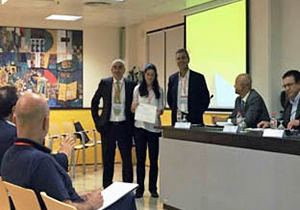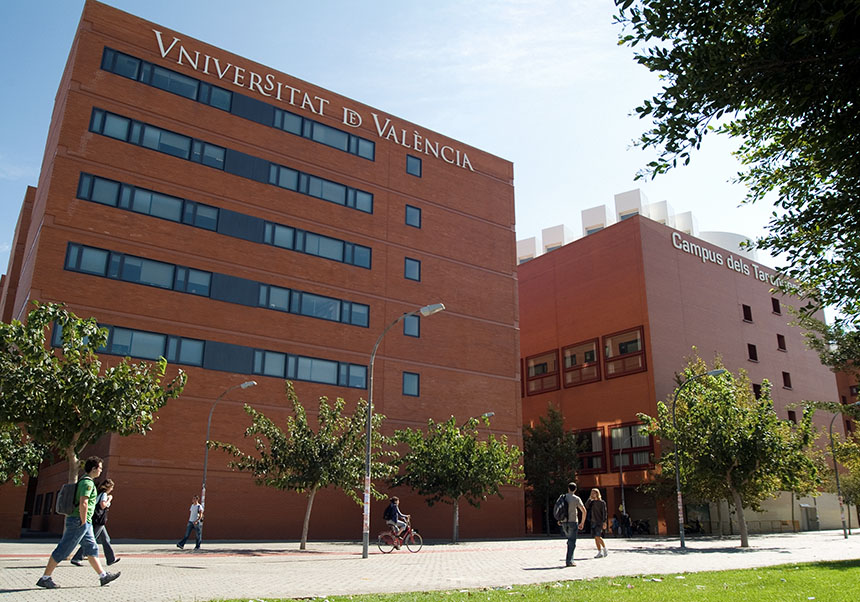The Faculty of Economics, host of the international conference ‘Clustering’ as a glocalization strategy
- May 26th, 2016

The Faculty of Economics of the Universitat de València hosts, 26 and 27 May, a new edition of the international conference ‘Clustering’ about Clusters and Financial Districts. The conference is a scientific meeting that favours networking between academics and scholars who, nationally or internationally, are working on topics like the aglomeration of companies, regions or networks, from a multidisciplinary approach (Management, Economy, Regional Science, Geography, History, Sociology, Internationalisation).
Francisco Puig, professor of the Department of Business Management of the Faculty of Economics of the Universitat de València, has been the person in charge of starting up the event and getting to gather several participants. This edition has more than 70 attendees from 15 different countries, particularly from Latin America and Italy. ‘The problem of our business network is not so much of the companies’ sizes, but being isolated’ Puig explains.
‘Clustering’ is not just a geographic concentration of companies, economic activities or people, but it also implies a combined action (cluster-ing) that goes from the social to the institutional or cognitive, that promotes the creation of an exclusive resource like it is the social capital. Now it is not just about being close to something or someone that matters, but about interacting. This interrelation can adopt several versions and propose important synergies translatable into lower costs, more knowledge and information, or influences and legitimacy.
The slogan: ‘CLUSTERING AS GLOCALIZATION STRATEGY’
‘Glocalization comes from a concept that joins globalisation + localization and refers to the idea of thinking globally and acting locally. It is a decision. In this context, models like ‘clusters’ and industrial districts are becoming a referent by its positive effect in different indicators of growth and survival, among others’, states professor Puig.
The geostrategic and socioeconomic interest that Clustering awakes is not just domestic, but also international: in invest decisions of multinational companies and in the agenda of politicians and influential institutions this variable is included as a key determinant, among others like GDP, educational level or incentives.
In the most academic level, this year stands out the participation of Tomás Iriondo, General Director of GAIA, Cluster TEIC-Euskadi, who will discuss about Collaborative Innovation. Similarly, from a public politic perspective, Glòria Prats Director of Catalonia Clusters and Promotion of Cluster-ACCIÓ, will explain her experience on Clusters Promotion.
‘We are already thinking of Clustering-2017 -indicates Puig-. After the last year success and the great reception of this year edition, we do not have any other option but thinking of next year. On one hand,, because it creates jobs and wealth and, on the other hand, because our colleagues encourage us to keep doing it. Furthermore, we, the Research Group (GESTOR), form a great team, the Faculty of Economics supports us and companies like TORRECID are collaborating (among other activities, the event will have a doctoral workshop in which four selected students will present their proposals of thesis and the winner will get a 500 euros award)’.















